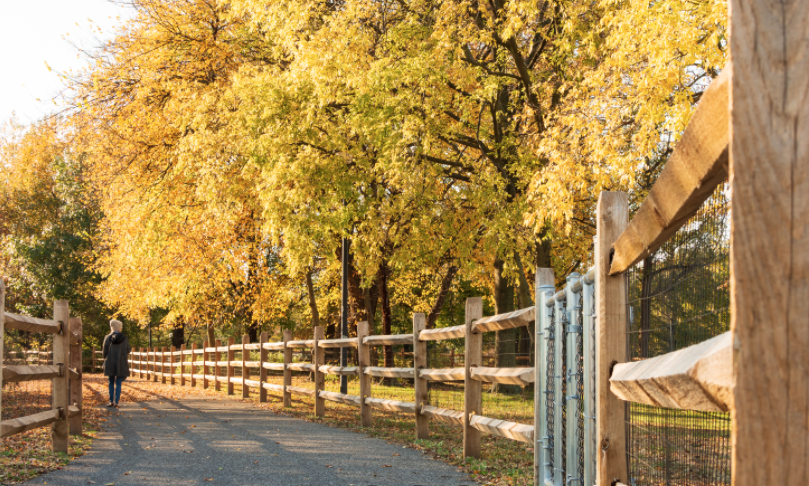Adrienne Mackey calls it Transmedial. I call it locative media.
Whatever the nomenclature, finding a project with the scale and creativity of TrailOff is a rare find today given the diminishing support for the arts in the time of Covid.
One year in workshops, three years in the making, TrailOff is a “walking performance” created by Adrienne’s company, Swim Pony, in collaboration with the Pennsylvania Environmental Council (PEC), and Canadian app developers, Toasterlab.
TrailOff invites users to walk one of ten nature trails which reflect the stories of ten very different Pennsylvanian writers. With the likes of Indian dancer and poet, donia salem harhoor, or spoken word poet, ari, Mackey has chosen a diverse, vibrant and engaged group to work with.
“There’s a scene where we have this kind of amazing Afro-future climate apocalypse mystery story where there’s a character who’s coming from the lockdown centre of the city to the hinterlands in search of this missing set of twins…”
Underpinning Swim Pony’s work to date is a history of “creative playful experiences.” The End, for example was an “alternate reality game and theatrical installation” where each ‘journeyer’ spends 28 days contending, via text messages, with their own mortality and “what brings meaning to their life.” If TrailOff steers Mackey more towards the literary end of locative audio spectrum, her background in live performance, shines through (I was able to listen to a number of TrailOff clips prior to talking).
When stepping her writers through the locative experience (none of them had written for locative works before), Mackey likens the narrative pieces of a story to the recitatif and the music to the aria. “The scenes forward the story action (a la the simpler and more literal recitatif) and the music provides that moment of suspended emotional reflection (the verticality) to think about the forward action from a new perspective.”
Each trail features an original drama that unfolds over a roughly 2 mile route and collectively are designed to engage more people with the nature trails across the state: “Art has this amazing capacity to bridge people’s ability to see things in new ways. And one of the problems the environment council has is they’re not great at reaching the full diversity of people.”
Along with the Australian work of Rob Walton and Jason Maling’s Vanitas—and doubtless many other projects—I am reminded here of the power of theatre and live performance when it comes to locative storytelling. Sounds and stories do not have to literally speaking from, or speak to, any one site. They can be writerly and associative or figurative and ephemeral (take note Soundtrails). But hopefully not too ephemeral! TrailOff is only available for a year and must be experienced on location. Mackey is yet to do a final walk through, so time will tell how it all hangs together. That aside, I would love to put this app to the test. This is clearly a bold work, with much to offer future locative writers, dramaturgs and audio auteurs.
TrailOff will premier in September as a free-to-download mobile app. Check out the interview.

